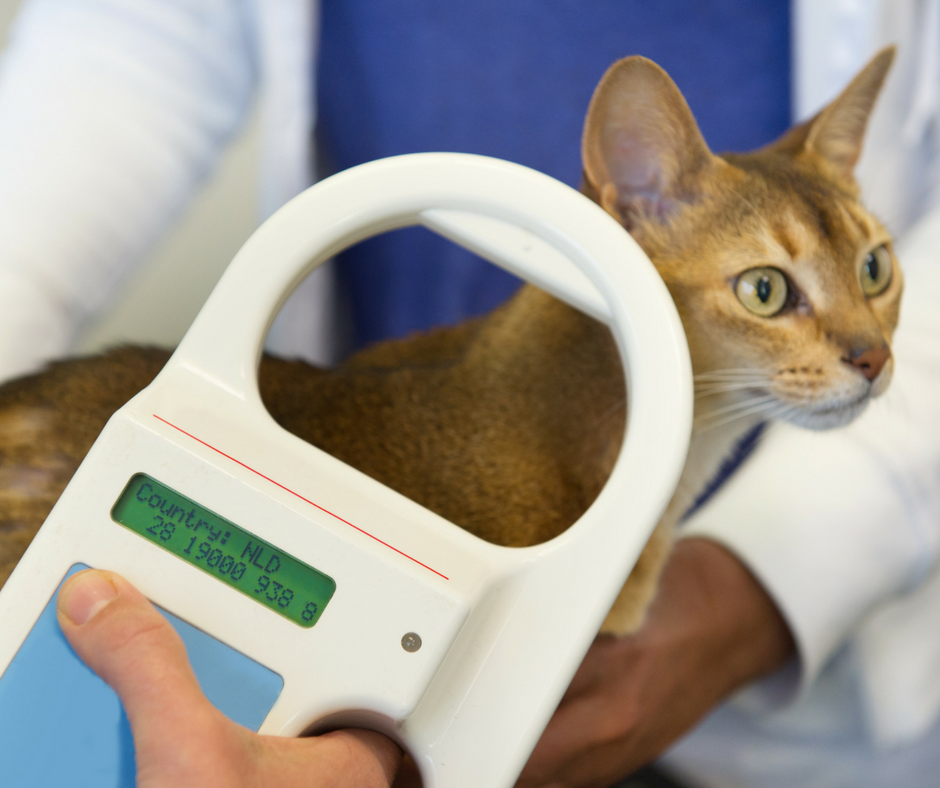
Pet Health Certificates: Do You Need Them When Traveling?
June 27, 2018
Should You Microchip Your Pet?
August 10, 2018In our veterinary hospital, we often get questions about ticks. And especially this year after such an extremely wet winter, ticks abound! From questions about treatment, to what issues ticks may cause… we know that these creatures can cause problems for your pet. Let’s talk about some of the frequently asked questions our doctors and staff get about ticks.
How did my pet pick up a tick?
Ticks have figured out the easiest way to get to your pet, they wait for your pet to just walk by in the grass or shrubs! Ticks don’t need to expend much energy to find an animal. They simply climb up tall to medium height grass and wait for something to walk by. When an animal, like you or your dog, walks through the grass they just hop on. Ticks are survivalists, they can go many months without feeding from a host animal. So they wait as long as they must until an opportunity to latch on to an animal presents itself. Ticks can live anywhere they may encounter an animal. Hiking trails, open spaces, and backyards are all environments where ticks can lie in wait for your pet.
Does a tick bite hurt my pet?
Tick bites usually do not hurt and generally go unnoticed. Most of the time, the bite itself is not painful and your pet may not act like it has been bitten. However, some pets will have an allergic reaction to a tick bite. He may become itchy and/or sensitive at the bite site.
I’m an avid hiker or spend a lot of time outdoors with my pet, where should I check my pet for ticks?
If you spend a lot of time outdoors with your pet, you should check him for ticks on a daily basis. Ticks like to latch on to the warmest places on the body. The top places to look are:
- In and around the ears
- Under collars and harnesses
- The groin, belly, and armpit areas
- Under the tail
- Between toes
These are just some of the more common places ticks like to latch on. However, they can bite and latch on anywhere on the body. If your pet has thick and/or long hair you should be very thorough in searching for ticks.
Ticks transmit diseases don’t they?
Yes, ticks can transmit a variety of diseases. Some of the more commonly known diseases are Lyme disease, Rocky Mountain Spotted fever, and ehrlichiosis. In all, there are over a dozen diseases that ticks can pass on to your pet. There is a vaccine for Lyme disease available for dogs (not for people). Depending on your lifestyle, your pet may not need the vaccine for Lyme disease. If you have any interest in the vaccine for your dog or questions about tick transmitted diseases call to schedule an appointment with one of our veterinarians.
I found a tick on my dog, how should I remove it?
You may have heard that you can burn off a tick with matches, use vaseline, or rubbing alcohol to remove a tick. Unfortunately, these methods hardly ever work and may actually harm your pet during removal. The best tool for removing a tick is a clean pair of tweezers. Using the tweezers, grab the tick by the head (as close to the skin as possible without pinching your pet) and pull with steady pressure. The closer you get to the skin, the better your chances for removing the whole tick. Sometimes, you will see that there are still some parts of the tick head and mouth attached to the skin after the body has been removed. This is ok, as the body heals from the tick bite these pieces will fall off. Just keep an eye on the area to be sure it is healing. There are some tick removal tools available online and at pet stores. These tools can be effective in removing ticks with practice.
Most importantly, be sure it is safe for you to remove a tick yourself at home. If you find a tick near your pet’s eye or inside his ear, removing the tick at home may actually injure your pet. If the tick is in a delicate area or if you would prefer us to remove the tick, we would be happy to do so. Just call our office to set up a time for tick removal.
What product should I use for tick prevention?
We get this question often and the best answer arises after a discussion with your veterinarian. There are many things to consider when you are picking a product for tick prevention. Would you prefer to give your pet a medication by mouth? Or would you prefer to use a topical product? What kind of flea protection will you need in addition to tick prevention? Because there are so many products on the market, have your veterinarian guide you to a product that fits your pet’s lifestyle. If you do not currenlty use a monthly preventive against ticks and your pet goes outside, please ask us for recommendations.

